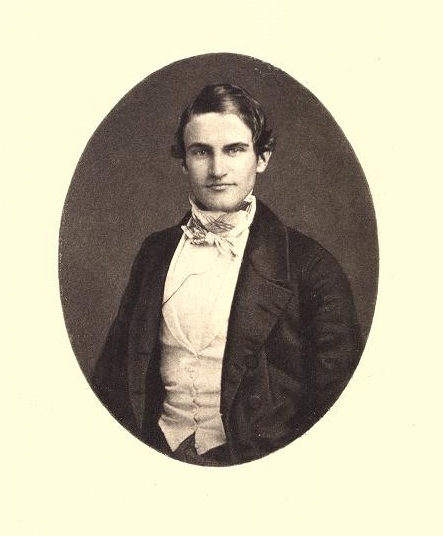 I’ve been reading Mark Twain’s Life on the Mississippi – which is superb – and I have been amazed by the sparkling little gems of prose which Twain culled from Parkman. I provide a sample, La Salle’s entering the Gulf of Mexico:
I’ve been reading Mark Twain’s Life on the Mississippi – which is superb – and I have been amazed by the sparkling little gems of prose which Twain culled from Parkman. I provide a sample, La Salle’s entering the Gulf of Mexico:
And now they neared their journey’s end. On the 6th of April, the river divided itself into three broad channels. La Salle followed that of the west, and D’Autray that of the east; while Tonty took the middle passage. As he drifted down the turbid current, between the low and marshy shores, the brackish water turned to brine, and the breeze grew fresh with the salt of the sea. Then the broad bosom of the great Gulf opened on his sight, tossing its restless billows, limitless, voiceless, lonely as when born of chaos, without a sail, without a sign of life.
The writing is so superb I thought I needed to take a further look at Parkman. Not only is the word-choice superior – “now they neared” – but the juxtaposition here of man’s little dated efforts with the vast personless forces and infinite time-distances of nature is excellent and characteristic. Even a glance at the Wikipedia page makes it clear that he was a fascinating man:
As a young boy, “Frank” Parkman was found to be of poor health, and was sent to live with his maternal grandfather, who owned a 3,000-acre (12 km²) tract of wilderness in nearby Medford, Massachusetts, in the hopes that a more rustic lifestyle would make him more sturdy. In the four years he stayed there, Parkman developed his love of the forests, which would animate his historical research. Indeed, he would later summarize his books as “the history of the American forest.” He learned how to sleep and hunt, and could survive in the wilderness like a true pioneer. He later even learned to ride bareback, a skill that would come in handy when he found himself living with the Sioux.
I want to see an account of his actual travels.
Post a Comment